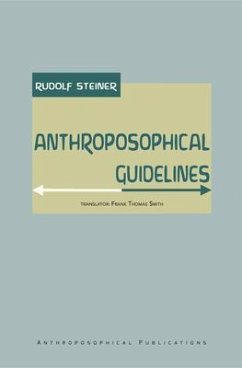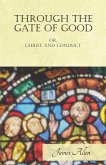This volume contains a collection of short essays by Steiner for the members of the Anthroposophical Society. They were written near the end of Steiner's life and in a way summarize, in highly concentrated form, the whole of Anthroposophy. Each essay ends with a short summary of its contents and these are known, in this translation, as the "guidelines." The guidelines are mantras and can be used quite fruitfully for meditation.
Frank Thomas Smith provides a new, reinvigorated translation of Rudolf Steiner's classic, "Anthroposophical Leading Thoughts." Any serious student of Anthroposophy, in fact, any individual, any citizen of the world, needs to read this book.
Frank Thomas Smith provides a new, reinvigorated translation of Rudolf Steiner's classic, "Anthroposophical Leading Thoughts." Any serious student of Anthroposophy, in fact, any individual, any citizen of the world, needs to read this book.
Dieser Download kann aus rechtlichen Gründen nur mit Rechnungsadresse in A, D ausgeliefert werden.









